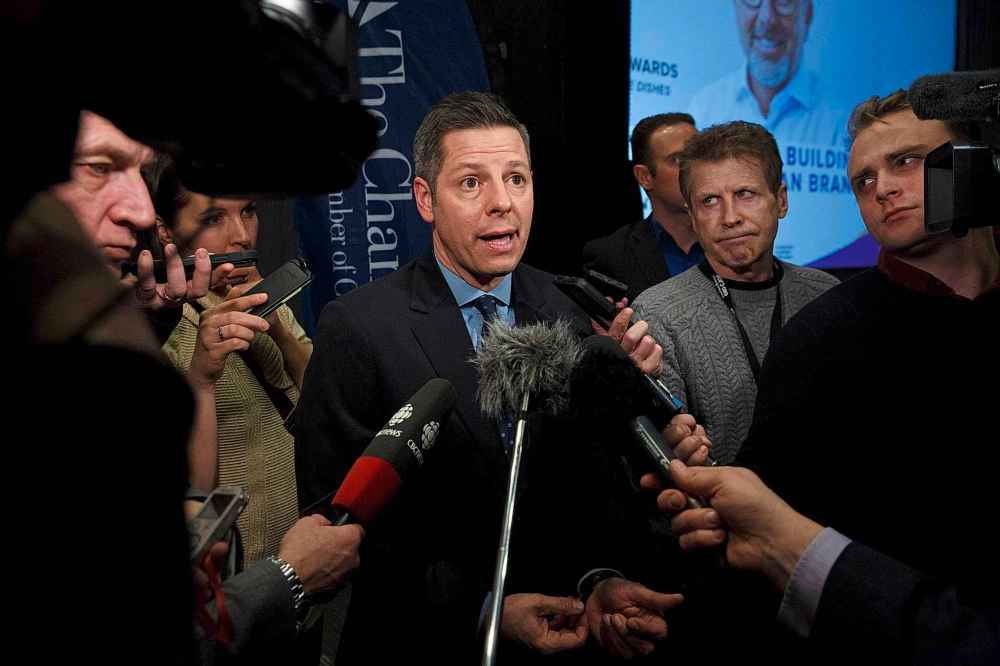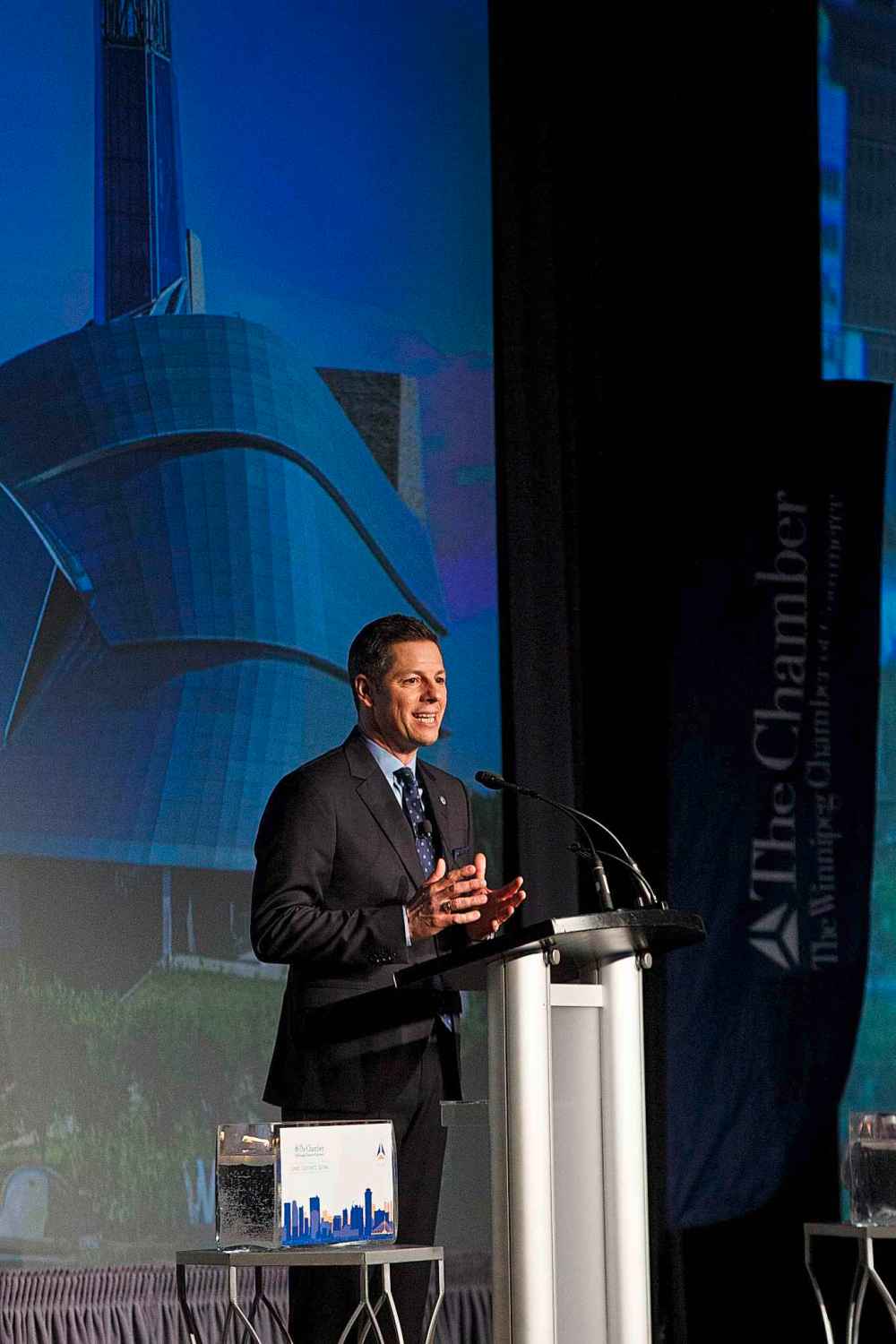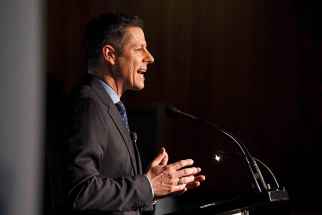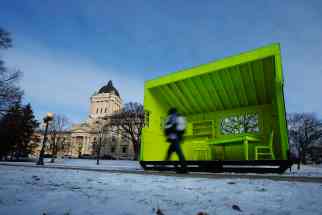Mayor’s ‘big city’ aspirations needless
Read this article for free:
or
Already have an account? Log in here »
To continue reading, please subscribe:
Monthly Digital Subscription
$0 for the first 4 weeks*
- Enjoy unlimited reading on winnipegfreepress.com
- Read the E-Edition, our digital replica newspaper
- Access News Break, our award-winning app
- Play interactive puzzles
*No charge for 4 weeks then price increases to the regular rate of $19.00 plus GST every four weeks. Offer available to new and qualified returning subscribers only. Cancel any time.
Monthly Digital Subscription
$4.75/week*
- Enjoy unlimited reading on winnipegfreepress.com
- Read the E-Edition, our digital replica newspaper
- Access News Break, our award-winning app
- Play interactive puzzles
*Billed as $19 plus GST every four weeks. Cancel any time.
To continue reading, please subscribe:
Add Free Press access to your Brandon Sun subscription for only an additional
$1 for the first 4 weeks*
*Your next subscription payment will increase by $1.00 and you will be charged $16.99 plus GST for four weeks. After four weeks, your payment will increase to $23.99 plus GST every four weeks.
Read unlimited articles for free today:
or
Already have an account? Log in here »
Hey there, time traveller!
This article was published 24/01/2020 (2145 days ago), so information in it may no longer be current.
Mayor Brian Bowman has been trying his level best these days to convince people that Winnipeg has graduated from small-town status to big city in just five years. It’s an odd position to take.
Difficult budget choices ahead

Posted:
Winnipeggers can expect the city's first multi-year balanced budget to take a “disciplined” fiscal approach to managing the coffers when it's released March 6, Mayor Brian Bowman says.
Politicians love trying to paint themselves as agents of transformational change, especially after they’ve been in office a few years. It’s called legacy building. But Bowman’s claim that under his stewardship Winnipeg has suddenly become a “big city” is a bit rich.
“The days of Winnipeggers looking at their city as a small town, I think, are over,” he told the Free Press in a year-end interview last month.
In a Winnipeg Chamber of Commerce blog published last week, Bowman is quoted as saying: “I like to think Winnipeggers are starting to see themselves as a ‘big city.’ We’re not a small town, we’re not a mid-sized city, we’re a big Canadian city.”
According to Bowman, he’s helped drive that transition.
“What I’ve been trying to do is to really change the mindset from viewing ourselves as a small town to a big city,” Bowman said last month in a year-end interview with CBC News. “We are a big city now.”
Are we?
Bowman took that further on Friday during his state of the city speech at RBC Convention Centre, claiming Winnipeggers are no longer afraid of big ideas. Apparently we’re big thinkers now, thanks to Bowman.
“We’re not defined by ambivalence anymore, we’re defined by courage and collaboration,” he said.

There’s little evidence to support any of what Bowman is claiming.
Winnipeg’s population isn’t much bigger than it was a few years ago. It grew from 663,617 in 2011 to 753,700 in 2018, about an 1.8 per cent annual growth rate. Does going from just under 700,000 people to just over that mark make Winnipeg a big city? Probably not, especially compared to a city like Toronto, which has just under three million people.
Even when you add in the surrounding area (called the census metropolitan area), Winnipeg’s population was still only 832,186 in 2018 – not much bigger than Quebec City’s CMA. Montreal’s CMA was 4.3 million in 2018; Toronto’s was 6.3 million. Even Calgary and Edmonton had CMAs over 1.4 million in 2018.
Winnipeg’s economy hasn’t changed much either over the past five or six years. It’s humming along at its usual modest pace. It continues to enjoy historically low unemployment rates, but still relies on federal transfer payments to pay the bills.
Maybe measuring the size of a city isn’t about population or economic growth. Maybe it’s the intangibles that define whether Winnipeg is a big city or not, like having a National Hockey League team. The return of the NHL to Winnipeg in 2011 was certainly a boon to the city. But Winnipeg had an NHL team before, when (according to Bowman) it was still a “small town.” So it can’t be that.
Does having the Canadian Museum for Human Rights make Winnipeg a big city? Not likely. How about an expanded RBC Convention Centre or the new True North Square? They’re nice additions, but they certainly don’t make Winnipeg a “big city.”
There’s nothing wrong with being a medium-sized city. Part of what attracts people to a city like Winnipeg is its relatively small size, including how easy it is to get around.
There is no widely accepted definition of what constitutes a “big city.” Although in Canada, we probably see cities with the largest populations – like greater Toronto, Montreal and Vancouver – as big cities. Centres like Winnipeg, Halifax and Hamilton are more likely considered medium-sized cities. Whatever the case, nothing has changed so drastically in Winnipeg over the past five or 10 years that would suddenly earn it “big city” status. There have been improvements in some areas and there have been challenges in recent years. But what Bowman is claiming is mostly in his head
Besides, there’s nothing wrong with being a medium-sized city. Part of what attracts people to a city like Winnipeg is its relatively small size, including how easy it is to get around.
There’s elbow room in Winnipeg; less traffic, shorter line-ups, more time left at the end of the day to spend with family and friends. Winnipeg has the feel of a small town, but many of the amenities of a larger city. It’s part of its charm.
Why Bowman would want to convince people otherwise is silly.
tom.brodbeck@freepress.mb.ca

Tom has been covering Manitoba politics since the early 1990s and joined the Winnipeg Free Press news team in 2019.
Our newsroom depends on a growing audience of readers to power our journalism. If you are not a paid reader, please consider becoming a subscriber.
Our newsroom depends on its audience of readers to power our journalism. Thank you for your support.









